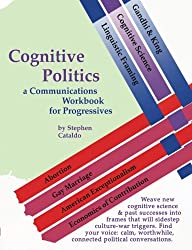First draft -- Help me write this!
There is a bit of noise on the internet about civility:
Personally, I think that the options that fall under "civility" are usually the right choice, and name-calling almost always counter-productive.
I'm not sure what our frame should be; it's not as simple, not a binary. I think groups that want Gandhi or King style resistance should be exploring ways to get us out of the civility-incivility frame. It might be best expressed with a graphic, something that we can dump into all the articles.
Let's look at war, where people often takes things seriously: In war, you want to know your enemy. You seek out what works. You try different things. You try to understand the enemy's power and capabilities, and don't expect fairness or rightness to prevail on its own; in the end, you need power.
In posturing, trying to get into your opponent's shoes and see things as they do is often seen as a weakness. Actions are often based on identity: people protest angrily or try to have civil conversations based on whether they are drawn to angry protest or civil conversation, not because in a particular situation ones works better. Posturing acts as if someone with power is watching: we make threats into the air to the DNC that they will lose the next election if they don't stop taking the corporate money, but what we are asking is that the actual people in charge not be in charge —we're right, they're wrong, so something should happen.
None of the people in my circles calling for incivility are actually ready to launch military strikes against ICE. The most serious might put their time and bodies on the line to blockade ICE: this is the most radical response I've heard of, and it's an action that I think is acceptable to people calling for radical civility and also those upset with civility — a sign that we are arguing the wrong frame.
So perhaps the frame is that on one side is posturing and focusing on yourself, and the other side is engaging power and exploring what works. (1) Nice-Nice Civility and (2) anger and (3) shutting it out and not caring — these are all right next to each other, personal preferences or things you posture for your social group. They are all opposites of a range of tactics that focus not on yourself but on the issues. Speaking truth to power and tactics from radical civility in the Gandhi and King tradition are over on that side, along with get out the vote campaigns. Tactics that might look very similar at a superficial level might be on opposite ends of the posturing vs reality-aware efforts to create change.
There is lots of talk today that what is happening in DC is related to fascism, so let's look at the lessons from Nazi Germany: Politely using active listening techniques to encourage a slightly Anti-Semitic German citizen to vote against the Nazi party in 1932, or dropping bombs on Nazi Germany in 1942 both were reality-aware, power-aware techniques. Having a fist-fight with a Nazi in 1932 where no one changes a vote, and bystanders are discouraged and close their hearts a bit, was posturing.
So, what is the frame that encompasses these ideas? What words stand out — or an image —that would let radical civility be counted as non-posturing, and spending your time tone policing allies while not speaking truth to power be declared posturing? How do we keep the radical civility movement from being associated with nice-nice civility / tone-policing? .
(I doubt we can use the word "civility" and not wind up with a frame that is primarily about civility, with tone police and Gandhi grouped together.)
